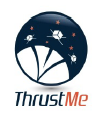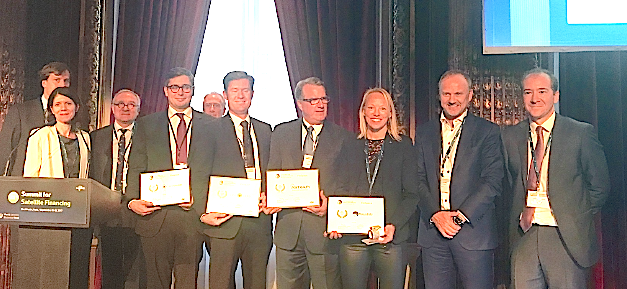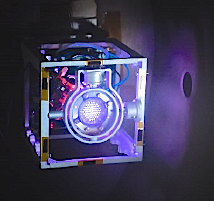

They are new, innovative and winning awards that, until now, would normally go to more traditional space actors. At an event this week in Paris the spotlight shown on this and other companies revealing that new space is moving in Europe, and these companies are making the movement irreversible and sustainable.
ThrustMe, a French NewSpace startup founded in February 2017 created from one of the respected research centers at École Polytechnique and the CNRS, has recently been accumulating innovation prizes and rewards. One such award dubbed the “Grand Prix” for innovative companies from the French government was presented by the French minister of higher education, research and innovation, and they also won two innovation prizes at the Paris Air Forum. Then again, this week, ThrustMe was recognized among the top five most promising startups in the space industry during the World Satellite Business Week (WSBW) that is organized by Euroconsult every year in Paris, which gathers prominent executives and influencers in the space industry to determine the health of the global satellite industry.

ThrustMe’s miniaturized electric thruster integrated in a Cubesat structure. This one was tested successfully at ONERA in April 2017.
This year, to bridge the generation gap between traditional space actors and the new space industry driven by newcomers, Euroconsult began the week by organizing the FinSpace Awards, a worldwide competition to identify and promote the most promising space startups.
Twenty-two startups that were incorporated less than six years ago that raised $1M or more were invited to the WSBW, and five of them, including ThrustMe received the prestigious FinSpace Awards during the event.
Jean-Jacques Dordain, FinSpace a jury president said that the success of FinSpace is one of the many signals demonstrating that new space is moving also in Europe. It is a wide momentum, involving many actors, public agencies, traditional and new, big and small, entrepreneurs and investors, they are all contributing to make the movement irreversible and sustainable, in Europe also.
Mark Rigolle, CEO of LeoSat Enterprises added that for the first time, space start-ups are meeting at WSBW. FinSpace is a global competition which designated the five most promising start-ups in the space sector. NewSpace is gaining traction worldwide and he has seen evidence of this already in the USA and now they see this coming to the forefront in Europe and Asia.
Gautier Brunet, COO of ThrustMe concluded that the WSBW has in the past been a meeting place for the traditional space sector with mainly executives from the large international space corporations. This year they see a shift, where new actors such as themselves get visibility, and they are grateful for the opportunity that FinSpace gives them to discuss future collaborations with executives and influencers in the global space industry.

ThrustMe was founded by two researchers from the École Polytechnique and the CNRS, leveraging patent-protected technology which is the result of more than 10 years of fundamental and applied research on space propulsion. The company develops and commercializes a game-changing electric thruster that is simpler yet significantly more powerful than existing systems. ThrustMe innovates in how propellant is stored, handled and accelerated, by combining ion thruster technologies with techniques used in the semiconductor industry for precision etching of materials.
As a result, their first miniaturized thruster is only 40 percent the size of a classical miniaturized electric thruster, yet with double the thrust and only half the complexity when integrating into the satellite.
Ane Aanesland, the CEO and founder of ThrustMe said that the key to continue innovating, that is in their technology, their production strategies and business models, is to mix people from different cultures, backgrounds and experiences.
Today, ThrustMe’s team includes a diverse balance of aerospace engineers, plasma physicists, semiconductor engineers, and business leaders coming from eight different countries. It is supported by a prominent advisory board including the former head of ESA, the former director of Innovation at Airbus and a Stanford entrepreneurship professor.

